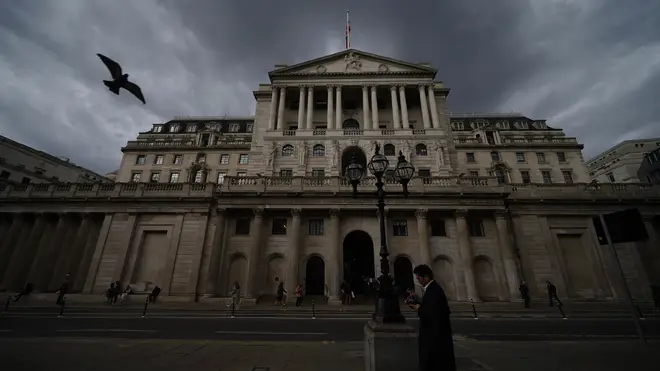
Matt Frei 10am - 12pm
29 September 2022, 17:34

It comes after Liz Truss on Thursday seemed to blame the market sell-off on Vladimir Putin’s war in Ukraine.
The country’s most senior economist has said that the current economic woes facing the UK are in part home-grown after the Prime Minister blamed them on Russia.
Huw Pill, the chief economist at the Bank of England, said there is “undoubtedly a UK-specific component” to the recent market movements, which have seen the pound collapse and the cost of Government borrowing soar.
“Over the course of the past week, there has been a significant repricing of financial assets,” he told an audience in County Down, Northern Ireland.
“Part of that repricing reflects broader global developments. Part of it reflects the ongoing normalisation of macroeconomic policy after the pandemic-induced episode of exceptional ease.”
It comes after Liz Truss on Thursday seemed to blame the market sell-off on Vladimir Putin’s war in Ukraine.
The UK is facing a “very, very difficult economic situation” because of Russia’s war, she said.
But the big sell-off, which pushed the pound to an all-time low against the dollar, came after her Chancellor announced his mini-budget last Friday.
Mr Pill’s comments make clear he believes not everything can be attributed to global events.
Just a day earlier, the Bank of England had been forced to reverse its position that it would start selling off the government debt that it owns.
It was needed because the market turmoil sparked by the Chancellor’s mini-budget meant gilts fell in value.
This fall could have led to the collapse of several pension funds without the Bank’s intervention, it said on Wednesday.
It is the second action the Bank of England has been forced to take in the days following the budget. On Monday, it was forced to issue a statement promising to act if needed.
“As the Governor said in his statement on Monday afternoon, we are monitoring financial markets developments – and, in particular, that UK-specific component – very closely,” Mr Pill said on Thursday.
“Importantly, what we have seen in recent days is, to a large extent, indeed a repricing.
“When new information – such as a change to the medium-term outlook for fiscal policy – is released, one would expect the relevant assets – in this context, government bonds – to reprice.
“That is a healthy sign of a functioning financial market responding to fundamental news.”
Earlier in the day, Mr Pill’s colleague on the Bank’s Monetary Policy Committee, Silvana Tenreyro, spoke to a conference.
She said that the drop in the value of the pound against the dollar will influence where the Bank decides to set interest rates because it will increase inflation.
“The US is super important in the reserve currency – a stronger dollar means higher import prices everywhere, so we take that into account,” she said.
“We account for the pass-through from higher import prices into inflation as part of our forecast and our decision-making process.”
She added: “The tightening of financial markets in the UK has been significant – the pass through from bank rate to mortgage rate has been incredibly high and fast, so we are seeing a significant tightening of financial conditions.”